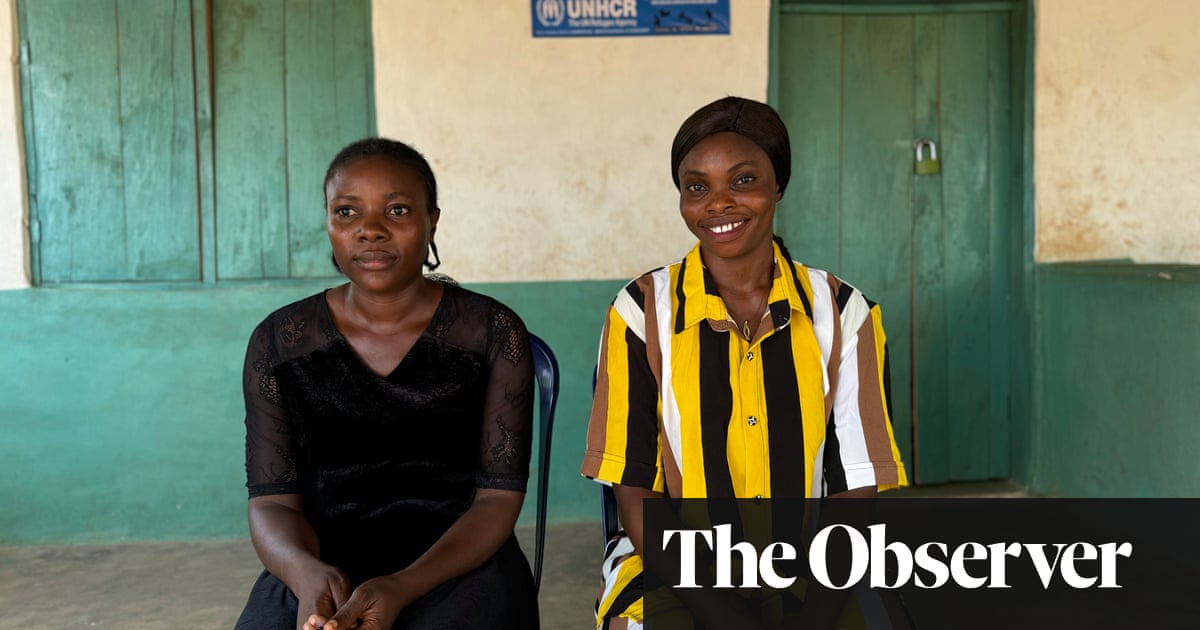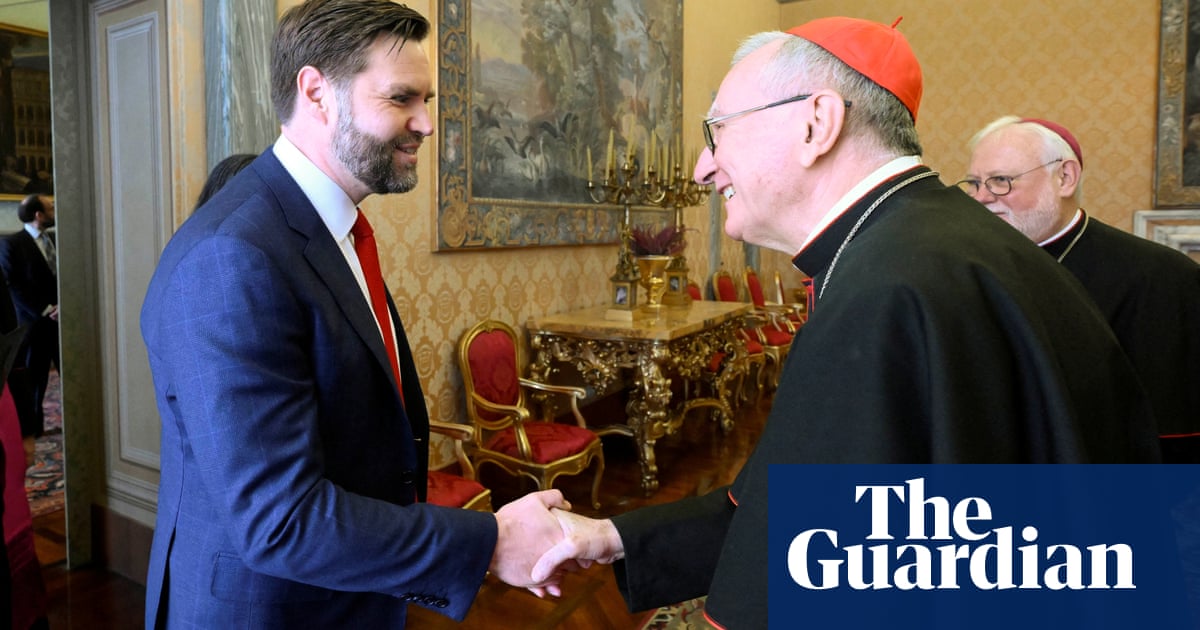Amany Killawi made a breakup playlist every time she was dumped, three in all. The playlists, which feature songs such as Gotye’s Somebody That I Used to Know and Apologize by OneRepublic, would make good soundtracks to romantic splits, but that’s not what they were. The playlists came together after Killawi was told by three different banks and payment processors they would no longer work with LaunchGood, the crowdfunding platform for the Muslim community she co-founded.
Stripe said it was restricting its work in the crowdfunding space after five years of working with LaunchGood. Stripe also told the company it didn’t want to do any more international humanitarian work – a prerequisite for a crowdfunding platform that caters to the Muslim community. Another bank told the company there were too many Muslim and Arabic names and figuring out if those names belonged to sanctioned individuals was difficult.
“People don’t realize Muhammad is the most sanctioned name,” Killawi, who was the chief operating officer at LaunchGood, said. With each dismissal, it felt like LaunchGood was on the brink of collapse. “If you can’t accept payments, you can’t exist as a company,” she said.
There were few existing options that gave Killawi and her co-founders the stability and reliability they sought. So they did what a growing number of Muslim founders have done since: create their own solution.
To mitigate the impact on the business if and when another bank decided to stop working with LaunchGood, Killawi and her co-founders Chris Blauvelt and Omar Hamid made the decision to establish a network of payment providers and banks to work with. Their hope was that there would no longer be one point of failure that could tank their business. When they were dumped by a bank, which continued to happen over the years, they had several backups.

Now, more than 10 years since its founding, LaunchGood has become a household name and has enabled its largely Muslim user base to raise nearly $700m. While the platform also hosts personal fundraisers, LaunchGood is better known for its emphasis on charitable giving and has enabled its users to set up an automated donation for every day of the holy month of Ramadan. It has become the primary gateway for many during Ramadan, during which many Muslims donate to charities on a daily basis.
The site’s rise and the challenges it has faced are not an anomaly. The “halal” consumer market, which includes halal food, financial services and other goods and services that cater to Muslims, has grown to an estimated $2tn globally, according to research and advisory firm Dinar Standard. Yet a 2022 study conducted by the Institute for Social Policy and Understanding (ISPU) found that Muslims were more likely than other faith groups to have their accounts at banks and other US financial institutions closed, investigated or otherwise challenged, with businesses effectively denying themselves access to Muslim customers.
That’s why Killawi has stepped away from her day-to-day responsibilities as chief operating officer of LaunchGood to start a sister company, a payments processor called PayGood in 2024. She hopes to provide for Muslim businesses and charities what LaunchGood’s team had to hack together for themselves: a reliable payment system that doesn’t discriminate.
“When [my co-founders and I] started out 11 years ago, we just wanted to build community,” Killawi said. “We never thought we’d have to become compliance experts. At some point it felt so existential. Can you even survive if you don’t have financial access in this world?”
While LaunchGood was among the early entrants into the largely untapped Muslim-friendly tech space, its sister company is part of a growing class of tech and software companies that aim to cater to Muslims in the US, Canada and the UK. But what it means to be a Muslim-friendly business has started to shift since the 7 October attack by Hamas. Targeting Muslim consumers has always meant, to some degree, aligning with the ethics and values of the Muslim community – whether that was providing a halal-friendly dating app, interest-free loans or modest clothes. Now, this new crop of players that provide Muslim-friendly technology are also either overtly or implicitly working to address a growing demand among its intended customers: make it easier to stop contributing to Israel’s oppression of Palestinians.
“What happened in Gaza this past year hit a very different nerve,” Killawi said. “Palestine is an evergreen issue for Muslims, but the level and scale of destruction of this past year was unlike any other. It accelerated this overall Islamic ecosystem and economy. There’s a new consciousness of people saying: ‘Let me really make sure I vote with my dollars.’”
Even PayGood, which is still in beta, has begun to emerge as an alternative to major payments processors such as Stripe and PayPal as Muslims navigate whether these existing platforms align with their values. PayPal stopped provided services to Palestinians in the West Bank and Gaza in 2021. Muslim and pro-Palestinian founders have begun to question the leadership at Stripe. In late November, Stripe CEO Patrick Collison posted a picture from Tel Aviv – a move many took as tacit approval of the Israeli government and its actions. In the weeks since then, Killawi said she has had at least 20 calls with founders looking for a simple payments solution and alternative.
“This is the most I’ve seen the Muslim community draw a line. They’re saying: ‘I want to put my money where my mouth is,’” Killawi said. “They feel ethically very conflicted. People just want to switch over to a product that aligns with their values.”
The official movement to end international support for Israel’s occupation of the West Bank and siege of Gaza, called Boycott, Divestment, Sanctions (BDS), is nearly 20 years old. But in this past year, more Muslims took up the cause of spending their money in accordance with that movement. More companies are answering the community’s call for “BDS-safe” alternatives, and boycotting the major brands on the official BDS list is beginning to feel sustainable.

The growing appetite for considered consumption is in part what inspired Adil Abbuthalha to start Boycat. In its current form, the app allows people to scan or search for brands to determine whether they have any ties to or involvement in activities that “support Israeli occupation, apartheid or violate Palestinian rights”. Abbuthalha has also launched a website that suggests alternatives to those brands when possible. Ultimately, Abbuthalha hopes the app will become the primary “ethical alternatives marketplace”, not just for issues relating to Palestine but all human rights violations.
“To empower someone to make the right decision and vote with their wallet, we need to create a BDS-like tool that not only tells you what to avoid, it also tells you what to spend your money on instead,” Abbuthalha said. “We want to make ethical shopping effortless.”
after newsletter promotion
Without alternatives, divesting from companies that profit from Israel’s occupation is difficult. Yet when Nourin Abubaker and Yara Ourfali started a home-swapping platform called Makani Homes less than a year ago, they didn’t set out to create a pro-Palestinian alternative to Airbnb. They wanted to give Muslims more options that accommodated the community’s often shared preferences such as alcohol- or pork-free homes or homes with bidets.
But the duo launched the platform at a time when many Muslims were looking to rely less on Airbnb after it reversed a ban on renting homes that were illegally built in the occupied West Bank. As of 2020, Airbnb had 200 listings in the West Bank, according to Amnesty International, which urged the company to “stop benefiting from illegal settlements built on stolen Palestinian land”.
As Makani has expanded its offerings, the founders have become more comfortable positioning the app as a means to spend less money on companies that operate in the West Bank. The site, which until now exclusively offered its users the ability to swap homes, just launched a home rental service much like Airbnb’s. The company also organizes Muslim-friendly experiences.
“Boycotting just got easier,” the subject line of a recent email introducing the company’s rental services read. The email goes on to talk about supporting a “community-driven business” instead of a “major travel corporation” that has listings in the occupied territories.
“Our whole purpose is to let people know that just because companies exist and they’re huge doesn’t mean that you always have to give your money to them,” Abubaker said.
Back in 2013, Killawi and her co-founders struggled to raise money to start LaunchGood. At the time, she says, few people were willing to take a bet on the Muslim community and even fewer on a Muslim-focused crowdfunding platform. In the years since then, investors have increasingly recognized the financial opportunity in backing Muslim-focused businesses. In 2017, a halal dating app, Muzz, became the first ever Muslim-centric app to be backed by Y Combinator. The halal investment platform Wahed has raised nearly $95m and was last valued at $300m.
These companies have in many ways paved the path for startups such as Boycat and Makani, enabling a much less hostile fundraising environment for a Muslim-run company. And in the last year, as more in tech have become more active around the cause of Palestine, an infrastructure for pro-Palestinian companies has also materialized. Paul Biggar, who was kicked off the board of a company he founded after writing a pro-Palestinian blogpost, started an incubator called Tech for Palestine that aims to provide support for companies that are advocating in some way for Palestinian freedom. As of November, the incubator was supporting 36 projects including Boycat. While Tech for Palestine differs from a traditional incubator in some ways – it doesn’t provide funding at the moment and not all the companies it supports are startups – those running it provide startup-like advice focused on how to advance the goal of supporting the pro-Palestinian movement, Biggar said.
“We’re trying to address the complicity of the tech industry in various different ways,” Biggar said. “The theme of everything we’re doing is supporting Palestine, either indirectly or directly.”
Being outwardly pro-Palestinian has still presented some challenges. Abbuthalha said the vast majority of venture capital firms won’t go near Boycat, though it boasts a good deal of momentum. The app surpassed a million users in less than a year and has partnered with the official BDS movement.
Despite the ongoing challenges Muslim-run and pro-Palestinian companies face, Killawi remains bullish about businesses that cater to the Muslim community.
“The time is now,” she said. “It’s a lot easier to get things started today than when we first started. Just start small, it’s worth taking a bet on this community.”

 3 months ago
48
3 months ago
48













































